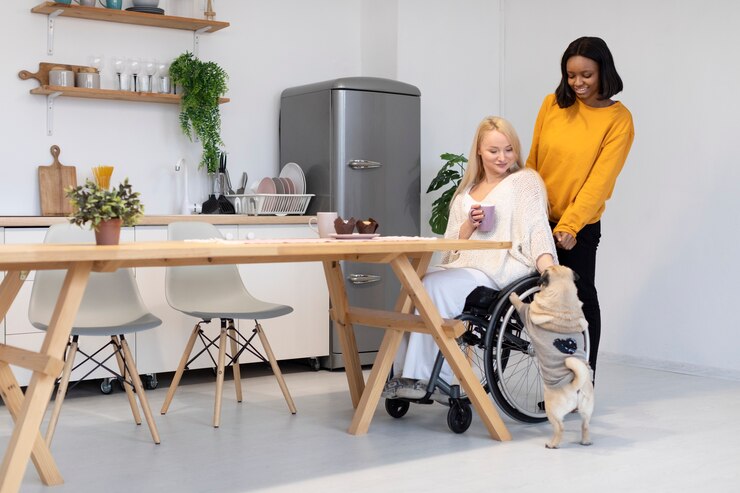For disabled adults, finding a supportive living environment that fosters independence, provides personalized care, and enhances overall quality of life is essential. Assisted living for disabled adults is a community that offers just that—spaces designed to help individuals with disabilities live as independently as possible while receiving the care and assistance they need to thrive. These facilities cater to the unique needs of disabled adults, whether they have physical disabilities, developmental disorders, or cognitive impairments, and offer a wide range of benefits that improve their daily lives.
Personalized Care and Support
One of the most significant advantages of assisted living is access to personalized care. Every resident receives individualized attention based on their specific needs and abilities. Whether it’s help with daily activities such as dressing, bathing, or medication management, assisted living communities ensure that each person’s care plan is tailored to them.
This personalized approach helps disabled adults maintain dignity and independence, as the level of assistance provided is carefully adjusted to avoid over-dependence while ensuring safety and comfort.
Increased Independence
While the term “assisted living” may suggest dependence, the reality is quite the opposite. Assisted living communities empower disabled adults to live as independently as possible. These environments are designed with accessibility in mind, incorporating features like wheelchair ramps, wider doorways, and specialized bathroom facilities to ensure that residents can move around freely and safely.
Residents are encouraged to participate in daily activities and make choices about how they spend their time, whether that’s engaging in hobbies, socializing with others, or even preparing their meals in some cases. The goal is to give individuals the freedom to live life on their terms, with support available when needed.
Social Engagement and Community
One of the biggest challenges faced by disabled adults is social isolation, especially for those living on their own. Assisted living communities provide a vibrant social environment where residents can interact with others, make friends, and participate in group activities. Social engagement is vital for mental and emotional well-being, reducing feelings of loneliness and isolation.
Activities such as game nights, fitness classes, arts and crafts, and community outings not only provide entertainment but also foster a sense of belonging and camaraderie. This social aspect of assisted living helps residents maintain a positive outlook on life and build meaningful relationships with peers and staff members.
Safety and Security
Safety is a top priority in assisted living communities. For disabled adults who may have mobility challenges or cognitive impairments, living alone can be risky. Assisted living facilities are designed to minimize these risks by offering 24/7 supervision, emergency response systems, and accessible living spaces that reduce the likelihood of accidents.
Staff members are trained to assist with medical emergencies, ensuring that help is always available when needed. This peace of mind is not only beneficial for residents but also for their families, who can rest assured knowing their loved ones are in a safe, supportive environment.
Access to Medical Care and Therapy
Many assisted living communities offer on-site access to medical care, therapy, and rehabilitation services. This is especially beneficial for disabled adults who may require regular physical therapy, occupational therapy, or specialized medical care. Regular health check-ups and assistance with medication management ensure that residents’ health is monitored and maintained.
